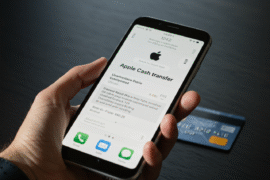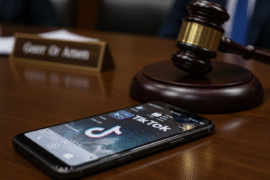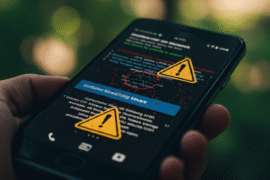This article may contain references to products or services from one or more of our advertisers or partners. We may receive compensation when you click on links to those products or services. Nonetheless, our opinions are our own.
The information presented in this article is accurate to the best of our knowledge at the time of publication. However, information is subject to change, and no guarantees are made about the continued accuracy or completeness of this content after its publication date.

Updated by Albert Fang
New technologies have drastically changed the real estate market. Today’s buyers virtually tour properties, secure funding online, and obtain extremely accurate predictions of how a certain asset will perform in the market.
For realtors, constructors, and property managers, today’s levels of automation equal better control, greater efficiency, and lower risk.
But while technology seems to have touched all aspects of the CRE landscape, real estate transactions are still as lengthy, cumbersome, and all but risk-free. Luckily, thanks to the advent of blockchain, this is about to change.
Learn how below.
What Is Blockchain? Let’s Cover the Basics
Blockchain seems to be an omnipresent buzzword, especially when talking about cryptocurrencies. And, indeed, the success of cryptocurrencies such as Bitcoin and Ethereum is due to their underlying blockchain ecosystem.
But what is blockchain? And why is it considered to be so revolutionary?
At its core, blockchain is a digital ledger that exists in a peer-to-peer network. What makes it unique is its intrinsic properties, including the fact that it is public, decentralized, and public. In turn, blockchain can be used to record transactions securely, efficiently, and in real-time.
Being a technology in its infancy, a lot is yet to be understood about the potential of blockchain. But something is undeniable: blockchain has the power to revolutionize real estate transactions as we know them today.
Understanding Blockchain in Commercial Real Estate
Due to the highly bureaucratic and legal processes involved in every real estate transaction, this landscape is still largely dominated by traditional systems and well-established processes. But while these solutions might have worked so far, it has never been more important for the real estate industry to adapt to the changing times.
And, today, blockchain is quickly becoming one of the pillars of the real estate industry, alongside AI and machine learning, by helping CRE businesses, buyers, and sellers complete frictionless transactions and risk-free transfers of ownership.
What’s more, blockchain supports the accessibility of smart contracts, which are self-executing, immutable contracts that come into place once all the predetermined conditions are met.
In the case of real estate transactions, these smart contracts recorded on the blockchain might eliminate the need for third-party providers (i.e.: brokers and legal teams), prevent fraud, and secure transactions.
Voted "Best Overall Budgeting App" by Forbes and WSJ
Monarch Money helps you budget, track spending, set goals, and plan your financial future—all in one app.
Get 50% OFF your first year with code MONARCHVIP
The Benefits of Blockchain in The Commercial Real Estate Market
Whether you operate in the healthcare facilities market or you guide your clients in the process of investing in multifamily real estate, blockchain is quickly becoming an essential tool in all aspects of the commercial real estate industry.
Some of the benefits it offers include:
- Immediate national and international transactions
- Availability of cryptocurrency payment methods
- Increased tradability and liquidity of real estate assets (which is historically considered an illiquid asset).
- Decreased risk of fraud
- Immutability of contracts
- The immediate accessibility of transaction and contract details
- Reduction of closing and transaction costs
- Increased transaction
- Increased record protection against physical risks (i.e.: fire and theft)
Blockchain-Powered Technologies That Are Transforming the CRE Landscape
If blockchain itself is becoming critical in the commercial real estate industry, so are the technologies that rely on blockchain ecosystems.
Some of the ones that are already playing an active role in the evolution of CRE transactions include:
- NFTs – Non-Fungible Tokens are pieces of code attached to an underlying physical asset. While the legalities of trading NFTs might still present risks, this technology might help streamline the trading of real estate assets.
- Metaverse – The metaverse might create a secure and private space to carry out real estate transactions.
- Digital Twins – Digital twins of real estate assets can help buyers and sellers obtain a better understanding of how certain properties will perform on the market.
- Cryptocurrency payments – Not only does blockchain support real-time international transactions, but it also gives buyers the option to pay with cryptocurrencies. As crypto real estate payments become more popular, it might become essential for CRE businesses to offer this option to clients.
Introducing Blockchain-Based Systems
Today, clients seeking funding have to wait between three and six weeks for approval, and real estate transactions still cost the buyer up to 5% of the property value. Ultimately, it isn’t surprising that over 60,000 real estate deals – or 14.9% of all deals under contract – fall through.
Luckily, thanks to the advent of blockchain, CRE realtors, brokers, and property managers can reduce costs and provide a seamless experience to their clients. Just make sure to look at the unique needs of your business before introducing a specific blockchain infrastructure – not all CRE niches are subjected to the same laws or compliance requirements!

Reviewed and edited by Albert Fang.
See a typo or want to suggest an edit/revision to the content? Use the contact us form to provide feedback.
At FangWallet, we value editorial integrity and open collaboration in curating quality content for readers to enjoy. Much appreciated for the assist.
Did you like our article and find it insightful? We encourage sharing the article link with family and friends to benefit as well - better yet, sharing on social media. Thank you for the support! 🍉
Article Title: How Will Commercial Real Estate Transactions Change in the Future
https://fangwallet.com/2022/10/25/how-will-commercial-real-estate-transactions-change-in-the-future/The FangWallet Promise
FangWallet is an editorially independent resource - founded on breaking down challenging financial concepts for anyone to understand since 2014. While we adhere to editorial integrity, note that this post may contain references to products from our partners.
The FangWallet promise is always to have your best interest in mind and be transparent and honest about the financial picture.
Become an Insider

Subscribe to get a free daily budget planner printable to help get your money on track!
Make passive money the right way. No spam.
Editorial Disclaimer: The editorial content on this page is not provided by any of the companies mentioned. The opinions expressed here are the author's alone.
The content of this website is for informational purposes only and does not represent investment advice, or an offer or solicitation to buy or sell any security, investment, or product. Investors are encouraged to do their own due diligence, and, if necessary, consult professional advising before making any investment decisions. Investing involves a high degree of risk, and financial losses may occur including the potential loss of principal.
Source Citation References:
+ Inspo












































